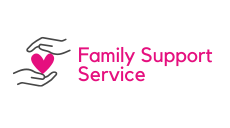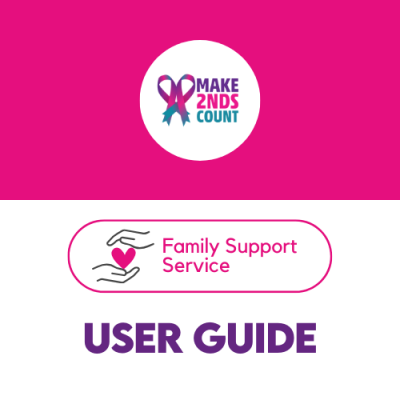Our comprehensive Family Support Service is tailored to help patients and their families navigate the emotional and practical challenges associated with a secondary (Metastatic) breast cancer diagnosis and the anxiety that is experienced, in different ways, by the family.
What is the Family Support Service?
At the heart of the service is Emotional Freedom Technique (EFT) — a gentle, practical method (often called "tapping") designed to calm the nervous system and ease overwhelming emotions. Delivered via Zoom by our practitioner Sam, EFT gives families a simple self help tool they can use any time stress, sadness, or anxiety arises. We are able to offer up to 5 sessions per family. Our hope is that it can help you as a family manage difficult conversations and feelings, and that the support is useful, comforting, and meaningful during an especially challenging time.
What do you get from the service?
Every family will receive the following:
- A pack of Reflection Records, 30 cards split into three categories: Looking Back, About Me and Looking Ahead, with the aim to encourage open family conversations around difficult subject matters. There are spaces on each card to record your answers.
- Textured Sensory Calming Stickers, soothing and calming to help ease anxiety.
- My Cancer Record, a detailed health timeline which you fill in, to help future generations have access to important family medical information.
- Up to five Emotional Freedom Technique (EFT) sessions, delivered via Zoom, one for the family member living with SBC and one for the partner and child or children. Further funded EFT sessions may be available to the families if certain criteria is met following evaluation.
Who can access the service?
During our pilot we are accepting 50 families in Scotland where a parent is diagnosed with secondary (metastatic) breast cancer and has a child or children under the age of 21.
Helpful links
Here are some useful signposting links to various charities and services that offer support to families.

We are thankful to The National Lottery Community Fund Scotland for providing the funding for this pilot with Scottish families


